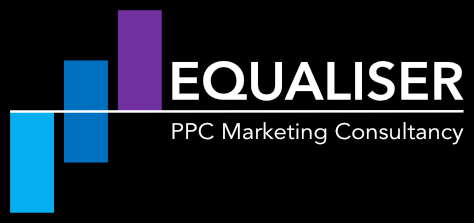Anyone who has worked in PPC over the last decade will tell you that Google reigns supreme. With a staggering 95% of the search market share, it’s clear that Google’s dominance in search advertising is unparalleled.
From a purely PPC perspective, this dominance gives Google a clear monopoly, but is this necessarily a bad thing? There are both advantages and disadvantages to consider when one player controls almost the entire landscape.
The Benefits of Google’s Monopoly in PPC
Google’s position at the top has driven impressive growth and innovation in the advertising space. The constant evolution of its products, the sophistication of its technology, and its relentless appetite for innovation have changed the way we approach digital advertising.
Here are a few ways Google’s monopoly has pushed the PPC ecosystem forward:
Product Innovation:
Google Ads has continuously developed new tools and products that allow advertisers to refine their strategies.
The platform offers powerful targeting capabilities, automation, and data that helps advertisers make informed decisions.
Better Data Quality:
Advertisers have benefited from the high-quality data available within the Google ecosystem.
From tracking conversions to optimising for specific goals like CPA (cost-per-acquisition) or ROAS (return-on-ad-spend), Google’s data capabilities have become essential for most advertisers.
Increased Growth:
Agencies have increasingly allocated a larger share of their clients' ad spend to Google, due to its efficiency and track record in delivering results.
Investment in search ads continues to rise as clients seek more value and results.
PPC professionals have seen their careers grow as they master Google’s platforms and tools.
As Google Ads has become a more critical part of digital marketing, the conversations around PPC have shifted.
What used to be a smaller, technical aspect of marketing strategy has now become a key point in pitch meetings. PPC has moved from the end of the presentation to the front and center, because it’s what clients want to discuss first.
The Downside of Google’s Monopoly
With all the benefits that Google provides, you might wonder where the problem lies. It’s simple: Google has made it so easy to stay in its ecosystem that many advertisers neglect other platforms, especially Bing. The common attitude is, “Bing only has 5% of the market—what’s the point?” This mindset has led many advertisers to ignore the potential benefits of diversifying their PPC strategies.
Yahoo and the Search Alliance with Bing never recovered after a clunky start, and they ultimately faded from the view of most advertisers. Google, on the other hand, made life easy for PPC teams by offering integrated products that eliminated the need for external tools like Kenshoo. Why use those when Google’s SA360 (formerly DoubleClick) was more advanced?
Similarly, Google Analytics became the default for many, thanks to seamless integration with Ads, offering extra metrics that helped advertisers optimise campaigns.
However, the result of all this convenience is that we’ve become overly reliant on Google. We’ve ended up stranded in an ecosystem that gives us little choice. Google, undoubtedly one of the most brilliant software companies of the last 20 years, has created a near-perfect product—but at what cost?
As a PPC consultancy, we help clients navigate how to get the best on Google. It's a complicated platform, continually changing - so you need the right strategy to stay on track with performance goals.
What If There Were Real Competition?
If Bing, for example, held 30% of the market, it would create healthier competition and more choice for advertisers. Imagine the impact of lower CPCs (cost-per-click), better conversion rates, or improved CPA data. With that level of competition, agencies would be better equipped to build more diverse strategies for their clients.
But the reality is that Google doesn’t have to compete with anyone. And as a result, it can push products like Pmax (Performance Max) to advertisers without much resistance. While Pmax offers AI-powered targeting, it’s often a ‘black box,’ meaning advertisers lose control over key aspects of campaign management, like negative keywords, creative input, and where ads are shown.
In a competitive landscape, any rival would likely differentiate itself by offering advertisers more control over these features. PPC professionals and clients alike would flock to a product that gives them more transparency and flexibility. This would force Google to innovate in ways that benefit advertisers, not just its bottom line.
The Future of PPC and AI: Should Google Lead?
As AI becomes the next wave of technological innovation, the question arises: Should Google be allowed to dominate AI-powered advertising too?
Companies like OpenAI have already shown that competition fosters innovation and benefits consumers. A similar dynamic in the PPC space would only serve to push Google to new heights, rather than allowing it to rest on its laurels.
Without real competition, advertisers are left following the leader, and this stifles the very innovation that Google was once known for.
So, does Google have a monopoly on PPC? In many ways, yes. And while it’s brought us to this point of incredible growth, we have to ask whether it's in our best interest to let one company continue to dominate.
It’s time to think about what the future of PPC could look like, one where competition sparks the next wave of innovation.


Comments